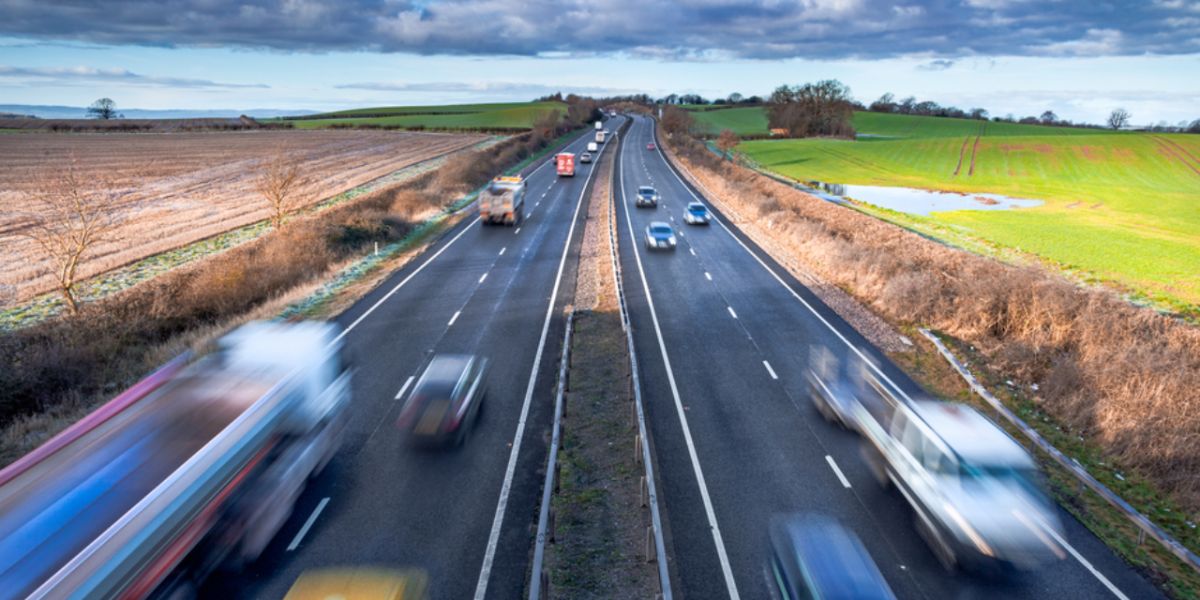
England has a well-developed and varied transportation system that makes getting around the country easy and efficient. From international airports and fast trains to local buses, trams, and bike hire schemes, there are options to suit every need and budget. This guide explores how to travel across England—by air, land, or water—with practical tips to help you plan your journeys.
England's transportation history
England has a very developed and diverse transportation network, which connects different regions and supports population exchange.
The country has a long transportation history. The first steam locomotive was invented in Great Britain in the early 19th century, and there have been significant improvements since then.
In 1952, there was a massive increase in the use of cars in Great Britain. The demand for buses and trains correspondingly reduced.
However, the ongoing investment in the transportation industry, especially in big cities, has led to modern developments such as Manchester's tram network.
In the early 1980s, most available public transport was privatised and transportation costs began to vary greatly.
Travel by plane to and from England
Today, England has around 40 regional and international commercial airports.
Each major city (London, Bristol, Cardiff, Birmingham, Norwich, Manchester, Liverpool, Leeds, Newcastle, Glasgow, Edinburgh, and Aberdeen) has its own airport, easing travel from one place to another.
Heathrow International Airport, less than 25 kilometres from West London, is the busiest airport in Europe regarding passenger traffic. Since travelling by plane is the fastest means of transportation, many prefer it, especially for business trips and weekend getaways. During festive periods, many airlines offer discounts on their tickets and special deals. On the other hand, Gatwick International Airport, located in the south of Central London, is convenient if you are looking to catch a cheaper flight.
Data from Statista indicates that UK-based airlines transported 139.6 million passengers in 2024. And even though most cities connect with London by air, they don't necessarily connect directly. For example, no direct flights exist between London and Newcastle in the northeast and Manchester in the northwest.
Good to know:
Advanced booking is recommended for domestic and international flights for the best deals.
Useful links:
Heathrow International Airport
The National Rail network in England
The National Rail is one of the most developed transportation networks in England, connecting different cities. The National Rail comprises 28 train operating companies, including the Eurostar, London Overground and London Underground. Each company offers different ticketing and fare options.
To get cheaper tickets, advanced booking is required. You can always get tickets on the travel date, but prices may vary depending on regions and companies.
The National Rail supports cycling as a convenient and environmentally friendly means of transport. Hence, taking your bike on board and parking your bike at stations is possible. In fact, on most journeys, when booking rail tickets in advance, you can request to be seated near a bicycle rack onboard.
PlusBike is a free resource for cyclists who travel by train and need access to information about bike parking areas, bike hire, bikes on trains and bike-on-board reservations. For personal luggage on board, the standard free allowance is three items. Excess baggage and bulky items such as sports equipment are subject to available space and additional costs.
Last but not least, if you want to take your pet on board, you can do so at no cost, as long as it is in a pet carrier or on a lead during the whole journey, including at stations.
Good to know:
Passengers requiring assistance can download the Transreport app, which helps them book assistance without contacting the personnel. The assistance will be delivered on time by rail staff members throughout the journey. Train strikes are quite common in London; check for updates when planning your travels.
Good to know:
Eurostar connects these European cities: London, Paris, Amsterdam, Rotterdam, Lille, Brussels, and Lyon.
Useful links:
Trams in England
There are eight light rail systems (aka trams) across England, which are in London, Sheffield, Manchester, the Docklands area of London, Newcastle, Glasgow, Lancashire County and Nottingham. There's a ninth in Scotland, also.
Some, such as the Blackpool Tramway in Lancashire, are first-generation trams, and others, such as the Docklands Light Railway, are fully automated.
Trams aren't the fastest means of transport. However, they are a great middle ground between trains and buses, stopping as often as buses and carrying as many people as trains.
Buses in England
Buses in England are one of the cheapest means of transportation, even though they're not the fastest. Several private bus companies serve different cities nationwide.
A good thing about British buses is that they are regular and comfortable, and their rates depend on the city and distance covered.
Tickets can be bought online, on board and at the bus station. If you are going on a long journey, checking the bus schedules is essential, and so is booking your seat ahead of time.
Good to know:
There are over 8,600 buses that form part of the London fleet, 73 are electric.
Useful links:
Boats and ferries in England
Travelling to England from most European cities is possible by ferries and vice versa.
The most regular service links France to southern England. You can also travel from Northern Ireland to northern Scotland via ferry.
Travelling by boat in England is primarily a form of leisure, and it is not recommended for urgent or short trips.
The rates vary, but ferries and boats are usually more expensive than other means of transportation. Besides, you can ship your car or motorcycle when travelling via ferries and boats.
Useful links:
Taxis in England
There are several taxi companies across different cities in England. Keep in mind that it is best to hire a registered taxi.
If you come across a taxi on the street, ensure they have a taxi registration number in the passenger's area. It is always best to inquire about the price to prevent the driver from increasing it later.
Uber in England operates with over 100,000 drivers and has become more easily accessible across England in recent years. In London alone, the company employs approximately 45,000 drivers. You must download the app on your phone to use the Uber service. Uber is relatively cheaper and easier to book than other traditional taxi companies. The taxi drivers have ratings, and more importantly, you receive a price estimate before accepting the journey.
London's famous (and costly) black cabs can be booked in advance, hailed on the street, or picked up from designated taxi ranks, whereas minicabs can only be booked in advance. This is also the case for other cities in England, like Liverpool, for example.
Useful links:
Renting a car in England
If you prefer travelling alone or with family, renting a car might be the most convenient form of travel. However, you must own a valid driving license to be able to hire a car.
Most cities and airports in England are full of car rental companies. Remember that you will be requested to subscribe to damage insurance before getting the car on the road. Some car rental companies also provide emergency assistance.
Good to know:
You must be at least 23 years old to rent a car in England.
Useful links:
Bike hire in England
There are bike lanes in many cities in England. This makes cycling safer and more enjoyable. The well-established cycling system encourages people to ditch their cars whenever possible and cycle around their city, even from home to work.
Several companies offer bike hire in England at affordable prices. London is leading the way in the eco-friendly public transportation system, and like other European capitals, public bike rental services are available across the city.
Santander Cycles, affectionately referred to as Boris Bikes as they have been named after the former mayor (and former prime minister) who launched this bike scheme, are made up of a fleet of over 12,000 bikes.
Good to know:
The cost of a Santander Cycle for up to 30-minute journeys is £1.65, and then you pay £1.65 for every extra 30 minutes of travel. Bikes must be returned to a Santander bike spot within 24 hours; otherwise, you could be charged a £300 fine.
Download the Santander app on your phone to ease your rides!
Good to know:
The top five cities in England for cycling are London, Cambridge, Bristol, Glasgow and Edinburgh.
Useful link:
Travel discounts and passes in England
If you are under 26, you can apply for the 16-25 Railcard, allowing you to travel across the country at a discounted price.
Pensioners also enjoy free transportation when within their region and discounted prices when travelling elsewhere.
If you are commuting daily to the same location, it is recommended that you get a monthly or yearly travel pass to help you save some money. The price of travel passes usually depends on the area and the company you are using.
For instance, in London, the Oyster card includes all forms of public transport. Other cities and towns also have their monthly cards for a unique form of transportation.
We do our best to provide accurate and up to date information. However, if you have noticed any inaccuracies in this article, please let us know in the comments section below.








